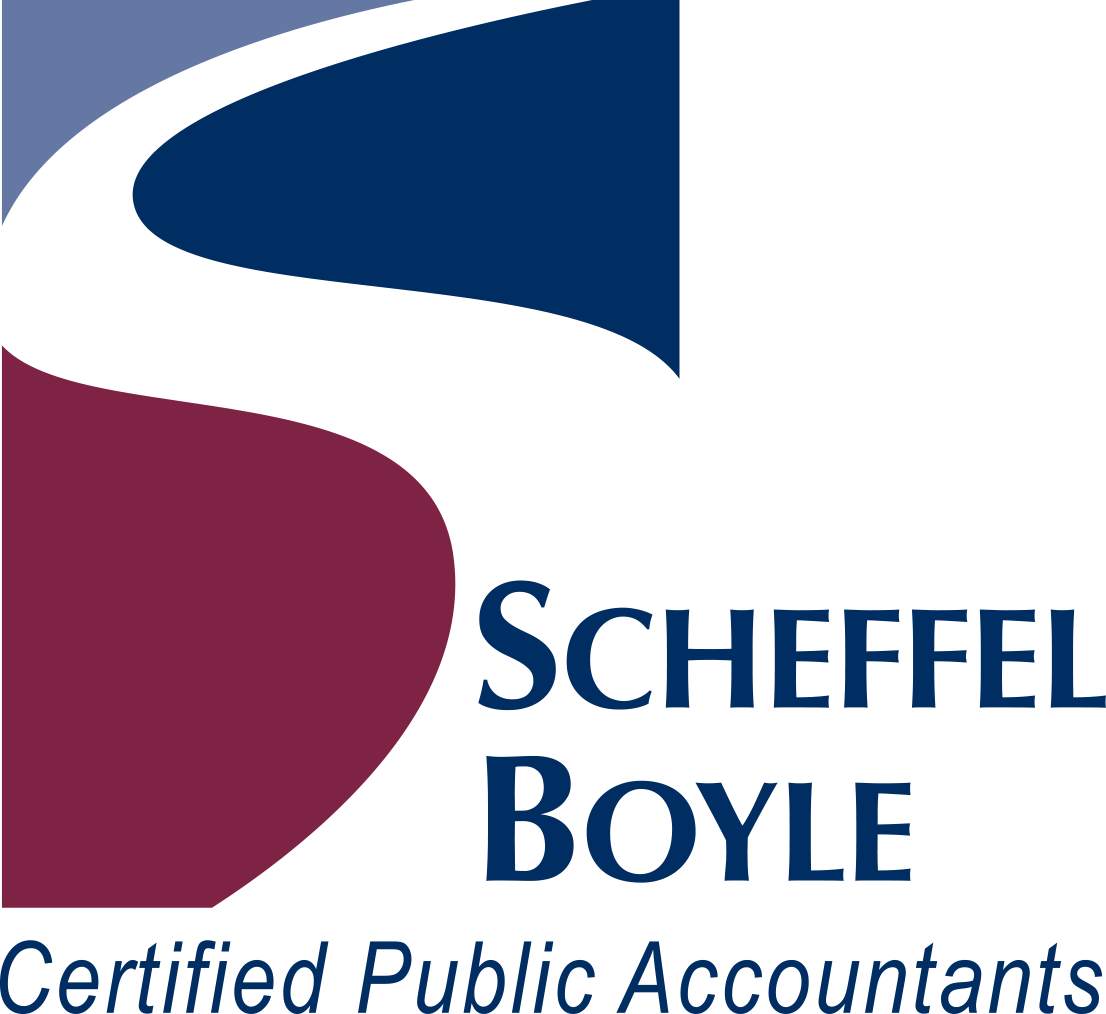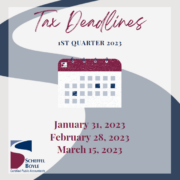2023 Tax Calendar: Quarter 1
January 31 – Employers must file 2022 Forms W-2 (“Wage and Tax Statement”) with the Social Security Administration and provide copies to their employees.
- Employers must file (paper or electronic) 2022 Forms 1099-NEC (“Nonemployee Compensation”), reporting nonemployee compensation payments, along with the related Form 1096 (“Annual Summary and Transmittal of U.S. Information Returns”), and provide copies to recipients.
- Most employers must file Form 941 (“Employer’s Quarterly Federal Tax Return”) to report Medicare, Social Security and income taxes withheld in the fourth quarter of 2022. If an employer’s tax liability is less than $2,500, he or she can pay it in full with a timely filed return. If an employer deposited the tax for the quarter in full and on time, he or she has until February 10 to file the return. Employers who have an estimated annual employment tax liability of $1,000 or less may be eligible to file Form 944 (“Employer’s Annual Federal Tax Return”).
- Employers must file Form 940 (“Employer’s Annual Federal Unemployment (FUTA) Tax Return”) for 2022. If an employer’s undeposited tax is $500 or less, he or she can either pay it with the return or deposit it. If it is more than $500, he or she must deposit it. However, if an employer deposited the tax for the year in full and on time, he or she has until February 10 to file the return.
- Employers must file Form 943 (“Employer’s Annual Federal Tax Return for Agricultural Employees”) to report Social Security, Medicare and withheld income taxes for 2022. If an employer’s tax liability is less than $2,500, he or she can pay it in full with a timely filed return. If an employer deposited the tax for the year in full and on time, he or she has until February 10 to file the return.
- Employers must file Form 945 (“Annual Return of Withheld Federal Income Tax”) for 2022 to report income tax withheld on all nonpayroll items, including backup withholding and withholding on pensions, annuities, IRAs, etc. If an employer’s tax liability is less than $2,500, he or she can pay it in full with a timely filed return. If an employer deposited the tax for the year in full and on time, he or she has until February 10 to file the return.
February 28 – Employers must file 2022 Form 1099-MISC (“Miscellaneous Income”) reporting certain payments to certain persons, along with the related Form 1096 (“Annual Summary and Transmittal of U.S. Information Returns”), and provide copies to recipients.
March 15 – Calendar-year partnerships and S corporations must file or extend 2022 tax returns. If the return is not extended, this is also the last day
If you have any questions, please feel free to ask one of our trusted CPAs! We’re always here to help!


